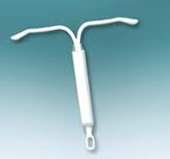- Could Your Grocery Store Meat Be Causing Recurring UTIs?
- Are You Making This Expensive Thermostat Error This Winter?
- Recognizing the Signs of Hypothyroidism
- 10 Strategies to Overcome Insomnia
- Could Artificial Sweeteners Be Aging the Brain Faster?
- Techniques for Soothing Your Nervous System
- Does the Water in Your House Smell Funny? Here’s Why
- Can a Daily Dose of Apple Cider Vinegar Actually Aid Weight Loss?
- 6 Health Beverages That Can Actually Spike Your Blood Sugar
- Treatment Options for Social Anxiety Disorder
IUDs, Contraceptive Implants Work Longer Than Thought, Researchers Report


Hormonal intrauterine devices (IUDs) and contraceptive implants appear to prevent pregnancy one year beyond their approved length of use, according to early results from an ongoing study.
Researchers are assessing whether these long-acting forms of birth control may be effective up to three years after their approved length of use.
Hormonal IUDs are currently approved for five years and contraceptive implants — small rods inserted into the arm — are currently approved for three years. Both types of contraception were approved by the U.S. Food and Drug Administration.
The study, by researchers at the Washington University School of Medicine in St. Louis, will eventually enroll a total of 800 women. These preliminary results were from 263 women who used the hormonal IUD Mirena and 237 women who used the contraceptive implants Implanon and Nexplanon.
The women were aged 18 to 45, and their contraceptives were within six months of expiring when they enrolled in the study. There were no pregnancies in the implant group and only one pregnancy in the IUD group, a failure rate similar to that of hormonal IUDs within the approved five years of use.
The findings appear online Feb. 5 and in the March 15 print issue of the journal Obstetrics & Gynecology.
The researchers will continue to follow these women and others who enroll in the study.
“This research is important because extended use of these devices will reduce cost to both the individual and insurer and improve convenience for women, who can delay removal and reinsertion,” study first author Dr. Colleen McNicholas, an assistant professor of obstetrics and gynecology, said in a university news release.
“The longer a contraceptive method is effective, the bigger the impact it can have,” study senior author Dr. Jeffrey Peipert, a professor of obstetrics and gynecology, said in the news release.
“In the long term, this work has the potential to change how we provide contraceptive methods around the world and can enable women to control their reproductive health and family size,” he added.
One expert said the findings were “extremely compelling.”
These types of birth control “are currently underutilized in the United States, with only about 10 percent to 15 percent of reproductive-age women using them, so hopefully this new evidence will encourage more women to consider them,” said Dr. Jill Maura Rabin. She is co-chief of the division of ambulatory care in Women’s Health Programs-PCAP Services at North Shore-LIJ Health System, in New Hyde Park, N.Y.
“The ability to keep these devices in place for longer periods will not only reduce patients’ contraceptive costs, but will add convenience and flexibility to their lives,” she said.
Another expert pointed out another plus to IUDs and implants.
“All methods mentioned have the additional benefit of minimizing menstrual bleeding,” said Dr. Taraneh Shirazian, an assistant professor of obstetrics, gynecology and reproductive science at the Icahn School of Medicine at Mount Sinai, in New York City.
The findings will allow doctors to use these methods for longer time periods and make it easier for women who live where access to contraception is limited to prevent unwanted pregnancies, Shirazian added.
Previous studies have suggested that these forms of birth control may remain effective for longer than their approved length of use.
More information
The U.S. Office on Women’s Health has more about birth control.
Source: HealthDay
Copyright © 2026 HealthDay. All rights reserved.










